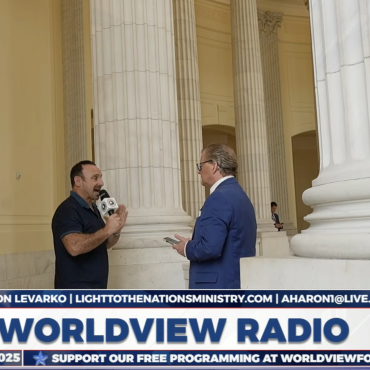Crosstalk: October 6, 2016
Mat Staver is the founder and chairman of Liberty Counsel, a nonprofit litigation, education and policy organization dedicated to advancing religious liberty, the sanctity of human life and the family. Mat has over 230 published legal opinions. He has authored eight scholarly law review publications and 10 books including, 'Faith & Freedom: A Complete Handbook for Defending Your Religious Rights', 'Same-Sex Marriage: Putting Every Household at Risk' and 'Eternal Vigilance: Knowing and Protecting Your Religious Freedom'. Mat is also the host of the radio broadcasts, 'Faith and Freedom' and 'Freedom's Call'.
In March of 2015 (before the U.S. Supreme Court ruling on same-sex marriage), the Alabama Supreme Court issued orders against all the probate judges in Alabama that issue marriage licenses. They were told that in order to comply with Alabama law they could not issue same-sex marriage licenses.
Mat noted that once an order is issued against you, even if it's wrong and found later to be unconstitutional, you still have to obey it until one of two things happen: The court that issued that order changes it or that particular order is overruled because it's appealed to a higher court.
June 26, 2015: The U.S. Supreme Court came down with its 5-4 opinion on same-sex marriage. On June 29th the Alabama Supreme Court said to the people in the case that they needed oral arguments given concerning the effect of the U.S. Supreme Court opinion on Alabama's existing orders.
Under Alabama rules, you have to have a decision within six months. Fast-forward to January 6, 2016. There was still no ruling by the Alabama Supreme Court. The probate judges had been filing briefs and emergency petitions looking for guidance and wondering what's going on because they had this order that says they can't issue same-sex marriage licenses yet now they had the U.S. Supreme Court opinion that had come down.
At that point newspapers were also beginning to wonder what was going on. After all, the Alabama Supreme Court had asked for the briefings to be done quickly yet nothing had been decided in the last six months.
In order to prevent the judges on the Alabama Supreme Court from being confronted with a violation of the judicial cannon for not ruling within six months, Chief Justice Roy Moore gave a four page status report. That was the administrative order. In paragraph 10 of that order he said, '...I am not at liberty to provide any guidance to Alabama probate judges on the effect of Obergefell (the U.S. Supreme Court marriage decision) on the existing orders of the Alabama Supreme Court. That issue remains before the entire court which continues to deliberate on the matter.'
Two months later they did come through with their opinion yet it was for that four page order that Justice Moore was charged. He was charged with what Mat described as the 'unbelievable proposition' that this order ordered the probate judges to disobey the lower federal courts and the U.S. Supreme Court. That's in spite of the fact that under oath, Chief Justice Moore said, 'I did not and would never order the Alabama probate judges, or anyone else, to violate any state or federal court order.'
In the end, the Court of the Judiciary suspended Chief Justice Moore for the rest of his term without pay in spite of the fact that the necessary 9 votes to remove him from the bench were not available. Since the suspension lasts until January of 2019, and at that time he will have reached the mandatory retirement age for judges, he is, in essence, suspended for life.





























